
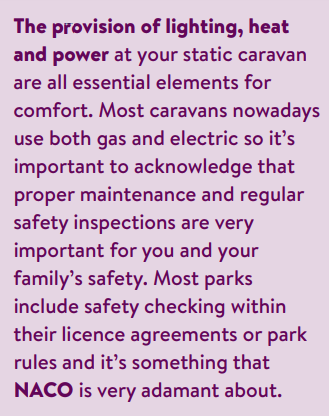
Modern static caravans and leisure lodges are all built to high standards and are often fitted with domestic gas appliances. All gas appliances must be installed in accordance with current gas safety requirements and the appliance manufacturer’s instructions. This is to comply with the law and to ensure minimal risk to you and your family.
Important risks to consider are carbon monoxide poisoning and fire. Whilst static caravan fires are uncommon, they quickly take hold and devastate the unit.
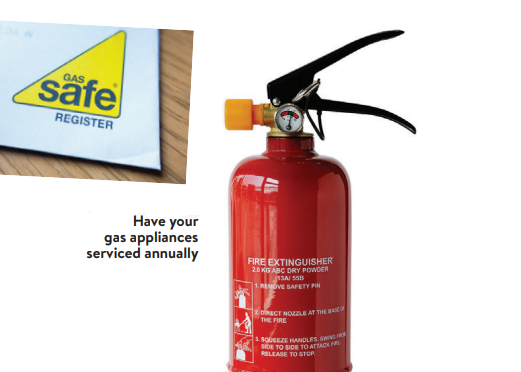
Gas
Annual gas safety checks are not mandatory in the UK, however they are increasingly becoming a requirement of many park operators. Most parks now require that privately owned static caravans have an annual gas safety check. Typically a gas check will cost no more than £100 and a check certificate will be issued providing the gas pipework and appliances are considered to be in safe working order.
In addition, it is always important to ensure gas equipment and appliances are regularly serviced for peace of mind. NACO recommends that you have your gas appliances serviced annually.
If you are letting a caravan equipped with gas appliances in the eyes of the law you’ll be considered a ‘landlord’ so you need to understand and comply with the law relating to gas safety. This law states that if you let a property, you must make sure all gas appliances you provide are properly maintained and a gas safety check is carried out every 12 months by a Gas Safe registered engineer.
Our number-one enquiry on this topic regards park operators insisting that a gas safety check is undertaken annually. Even if your contract doesn’t mention the requirement, we advise that you arrange for a check to be completed by a competent person. If your park operator is only allowing the work to be undertaken by their preferred engineer, give us a call as we consider this to be unfair, restrictive practice.
Carbon Monoxide (CO)
Carbon monoxide is a highly poisonous gas. You can’t see it, taste it or smell it, but it can kill quickly with no warning. Accidents which have occurred as a result of carbon monoxide poisoning or asphyxiation are caused by a combination of circumstances, usually involving two or more of the following factors:
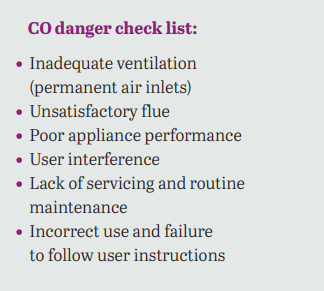
Install a CO detector NOW! and test is regularly!
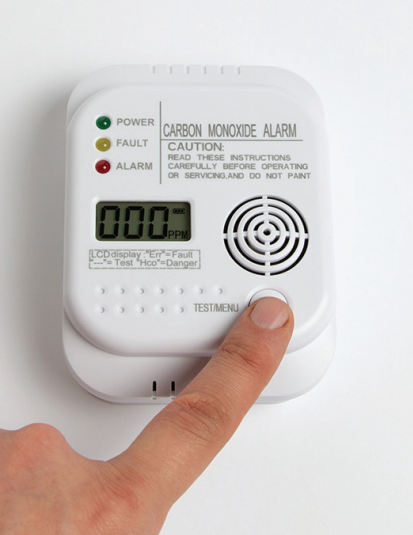
Electric
Who should carry out electrical work in my caravan?
Although many incidents are caused by faulty appliances rather than the electrical installation itself, a well maintained installation could significantly reduce the possibility of accident or injury.
So, it is important that any electrical installation work is carried out only by people who are competent. This means people who have the knowledge, skills and experience needed to avoid dangers to themselves and others that electricity can create. Speak to your park owner who should be able to recommend some reputable local trades people. Get to know your electrics by identifying where the consumer unit (fuse box) is.
If you let your caravan or lodge - unlike gas - there is no legal requirement for you to obtain and renew an Electrical Safety Certificate. However, you are required, by law, to ensure that all electrical appliances, circuits and fixed installations within the property are safe and are not hazardous to guests.
Electrical safety checks can be carried out by yourself, but it is strongly recommended that you get a full inspection by a qualified electrician to ensure the electrical items in your holiday let are safe. Portable Appliance Tests (PAT) are also advantageous as they’ll provide a good audit trail to prove that you’ve been responsible with a checking and testing regime. The key thing to understand is that if something does go wrong at your holiday home that results in injury or loss that you’ve taken adequate measures to ensure the safety of the electrics and appliances in your caravan or lodge.
Fire
While prevention is much better than cure, should a small fire take hold in your static caravan, having safety devices close to hand can help to keep the worst at bay.
Fire extinguishers – it is recommended that at least one fire extinguisher should be located within your static caravan at a point of easy access.
Fire blankets – when resulting from fats and cooking oils, minor fires should be covered and extinguished with a fire blanket.
Smoke alarms – often the first alert for fires happening at night, smoke alarms are a must. These should be tested regularly and at least every time you arrive at your static caravan home.
In the event of an accident, while it can’t protect your assets from the fire itself, your static caravan insurance can protect you against its financial implications, allowing you to get back on your feet as soon as possible.
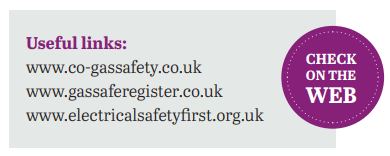
FEATURED PRODUCT
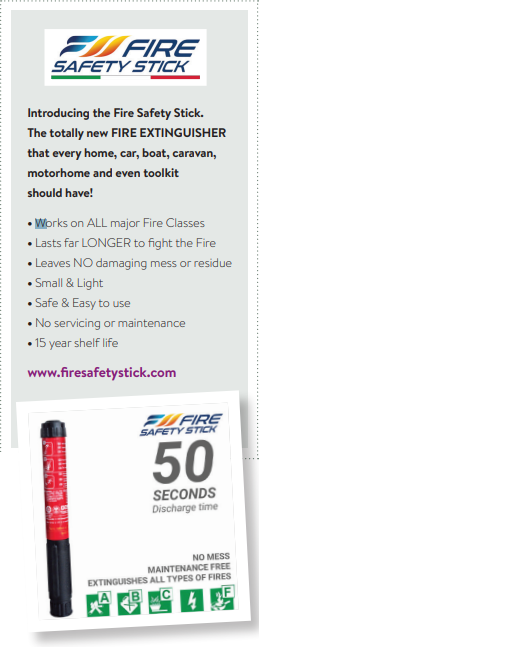
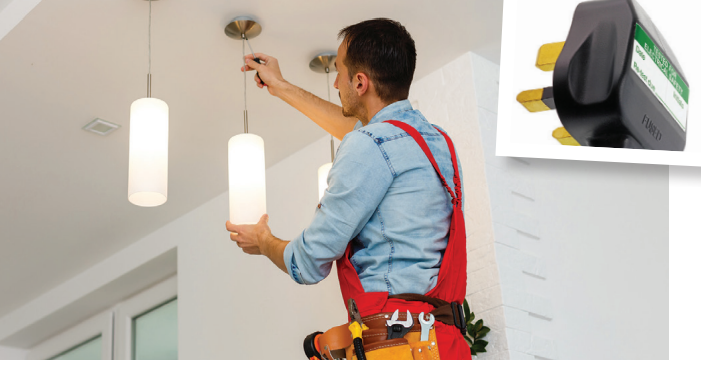
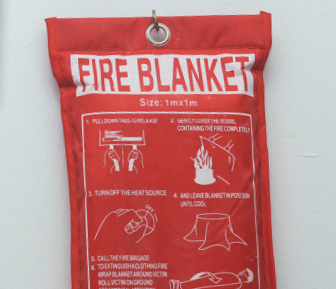
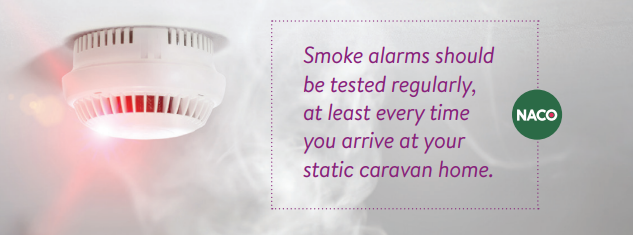
RELATED ARTICLES - advice and support buying a static holiday caravan products & reviews static caravan advice
Published on 01 September 2022 By Jenny Blumsom